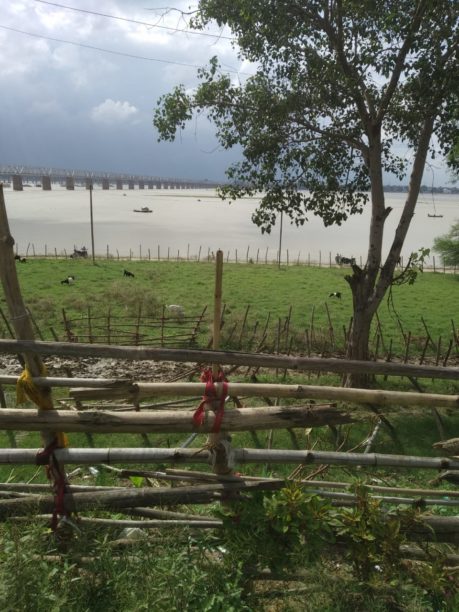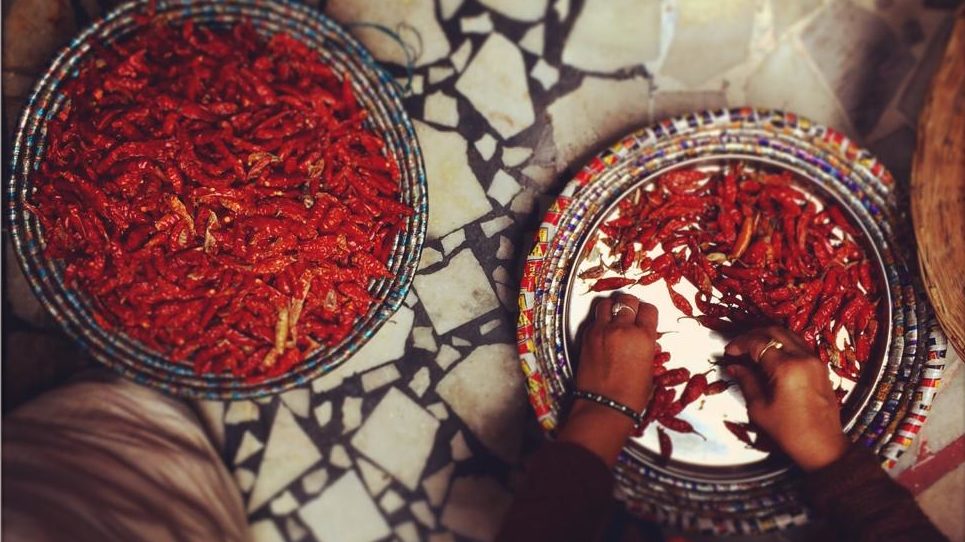I would say it started in 2017, when Yogi Adityanath, the head priest at a Hindu temple in Gorakhpur, took oath as chief minister in my home state, Uttar Pradesh. Social media was in its nascent stage for older adults in India. My mother got her first smartphone that year, as did my father. Instagram, Facebook, and Twitter would follow shortly after, for them as for many of their generation.
My generation had made ourselves at home online long before; I enjoyed cinephile and literary accounts on Twitter, and had been on Instagram for more than four years by then. But in 2018 I started spending more and more time on Instagram—too much time—and decided to delete my account. I deleted my WhatsApp account just as my mother and father were creating theirs back home, three hundred miles away. It was difficult to make sense of the fact that my online spaces, which had once been sanctuaries for relief and inspiration, away from the toil of daily life, were now being invaded by my parents.
Email soon became my primary mode of communication with my mother. We would exchange pictures from our respective work desks, share poems in English and Hindi, and talk about movies. She shared inspirational videos of television personalities, and I would dig out grainy old videos of her favorite actors on YouTube. Occasionally we wrote one another letters.
My father, meanwhile, was creating a vile little online universe of his own. On Twitter and Facebook he churned out free propaganda on behalf of the right-wing government that rules our state and the country. He posted hate speech and hostile messages, deliberately instigating conflict. He wrote malicious tweets about a Muslim standup comedian who’d become embroiled in a political row. He didn’t know any of the people he tweeted at or about, but that didn’t stop him from spreading his nastiness online. On numerous occasions his accounts were suspended or removed. But he was, and remains, unflappable in the face of such setbacks, simply creating a new account each time an old one was banned.
Just as he had in our actual world for so many years, he exerted himself online to promote hostility and violent arguments. At first we heaved a sigh of relief, naively supposing that a mind as negative and destructive as his would do less harm in the virtual world. But slowly, his trolling made its way into our daily lives.
I was a journalist then, and he would often scold me, mocking my personal politics and deriding the newspapers that employed me. He upbraided me, too, for not being as proper and polite as the right-wing women journalists he’d been reading. He also instructed me to criticize and ridicule a left-wing student protest. When I refused, or disagreed with him, he would lose his cool. For him, true journalism could only mean working for the right wing.
It’s 2022 April, and I still can’t read my father’s timeline without feeling triggered. My stomach would turn sometimes at the sight of his tweets, leaving me unable to fathom how I could be his daughter. More than once, I blocked him from my Twitter profile. Friends knew that I was estranged from my father, but I did not want them to know that in addition to being emotionally abusive he was also an online troll, a right-wing fascist ‘bhakt‘. If he had worked hard in his life and toiled to create a beautiful wealth of family, relationships, and comfort, now he was ruining all of that, and in full public view.
On Twitter my father posts angry screeds targeted at famous people. Seeing him join the online mobs abusing celebrities would prick me personally. A sense of entitlement glares through his words, as if everyone should leave all their business aside and listen only to him. His jabs are strikingly direct and precise, as if he’d studied his subjects up close. This is also how he brought up my brother and me; that is how he still treats my mother. He is incapable of conversation. It was always one-sided drivel, too bad for us if we couldn’t catch up.
At the same time, it disturbed me to think that I was seeing him bring this upon himself, and not helping him. But I was also trying to protect myself. My father belongs to that despicable clique who intentionally offend others online, and that was and is tough for me to accept.
My husband, after learning about all this, is surprised, and calls me an example of how human beings can defy their genes.
I have no qualms about him reading this essay. His algorithm is such that few international media outlets are likely to show up on his timeline. And on the off chance that he does read it, I couldn’t care less.
Growing up, I saw him as my hero. If he were two minutes late at the railway station and I was unable to see him, I would sob uncontrollably. But with age, I came to realize that the way he treated my mother was not right. I saw that he didn’t bring us up with love. And that to him, none of this mattered. He was far too egotistical and vain to notice or care about the hurt he was causing to his immediate family. Similarly, I don’t care if he reads this assessment, or if he thinks that I am a “communist.” Although that is a different argument altogether.
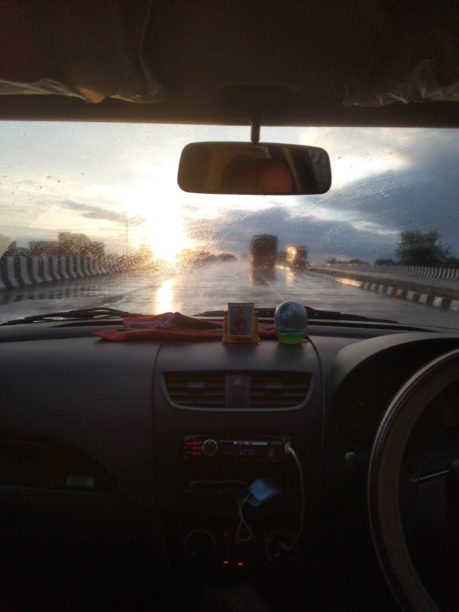
With her smart phone, free internet and socials, my mother created her own feminist utopia. She bought a pair of earphones and would listen to spiritual music for hours. She would look up details about writers and film personalities she had once been in awe of, watch movies on YouTube and learn what her once-favorite actors were doing in life now. She enjoyed video calls with me, my brother’s family and even my then-boyfriend. She loves taking photographs and captured numerous pretty images of her garden, her road trips, her sarees. Selfies became our very own personal love language. She would send me one of her smiling when I was low and it would cheer me up like nothing else. Scouting for things she needed for the house that were not available in the small grocery stores of my hometown, she and I would buy all kinds of things together online. She was using the internet as a feminist place.
It was as if the two of them resided on different planets altogether, virtually as in the real world.
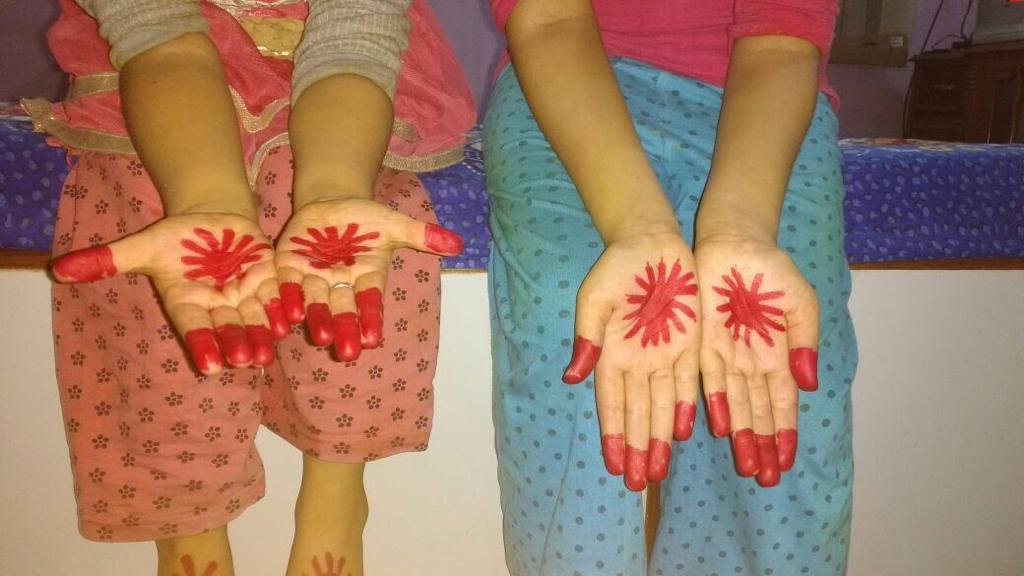
In the face of extreme hostility in the house, my mother found in the internet a place where she could be all by herself. When she was browsing, she told me, her time was her own. Listening to inspirational speeches by writers, reading about the lost lives of people from a previous generation, she overcame the gendered barriers of the real world in the online space, finding ways to keep herself occupied, motivated and positive. On other occasions she was constantly taking photos of the moon, food, cats, flowers and plants, and filling our chats with them.
Though at first, from a distance, I saw her online activities as mostly as cutesy and innocuous, I came to see that my mother was proactively developing a world of her own. Away from the screaming news channels, she would find shelter in an astrology video, or in scrolling through new knitting designs on google. It was a therapy for herself alone; when I suggested that she create an account on Instagram for her wonderful photographs, her response was simple: After 35 years of a public working life, she didn’t want other people to know what she was doing. She enjoyed her harmless scrolling, trawling and meaningless lurking on the internet. She made dolls, booked cabs, watched films – all on her own. We even downloaded online games to play together.
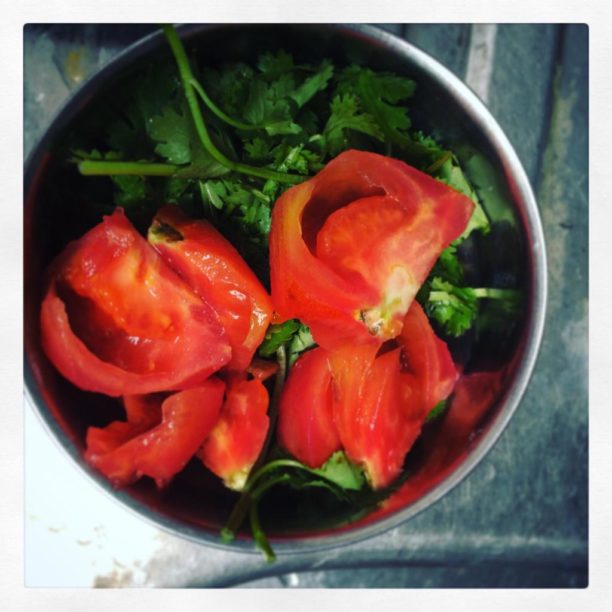
Social media widened the distance between myself and my father, and brought me much closer with my mother, in a kind of mirror of the polarization of our country, which is even more visibly acute now that the right wing has come back to power in my home state. I haven’t spoken with my father since 2018, when our personal, political and intellectual differences were finally and irrevocably revealed. And all day long, from waking to bedtime, I share meaningless, meaningful, and lovely texts with my mother on WhatsApp. We share our deepest secrets, agonies, and grievances. My father’s silent shift towards Hindutva became evident when he told me that students shouldn’t protest, driving us apart completely; new sides of my mother’s spirituality and creativity emerged through the same essentially the same technologies. My parents’ lives on social media are like a kind of map of the divided India we live in now.
